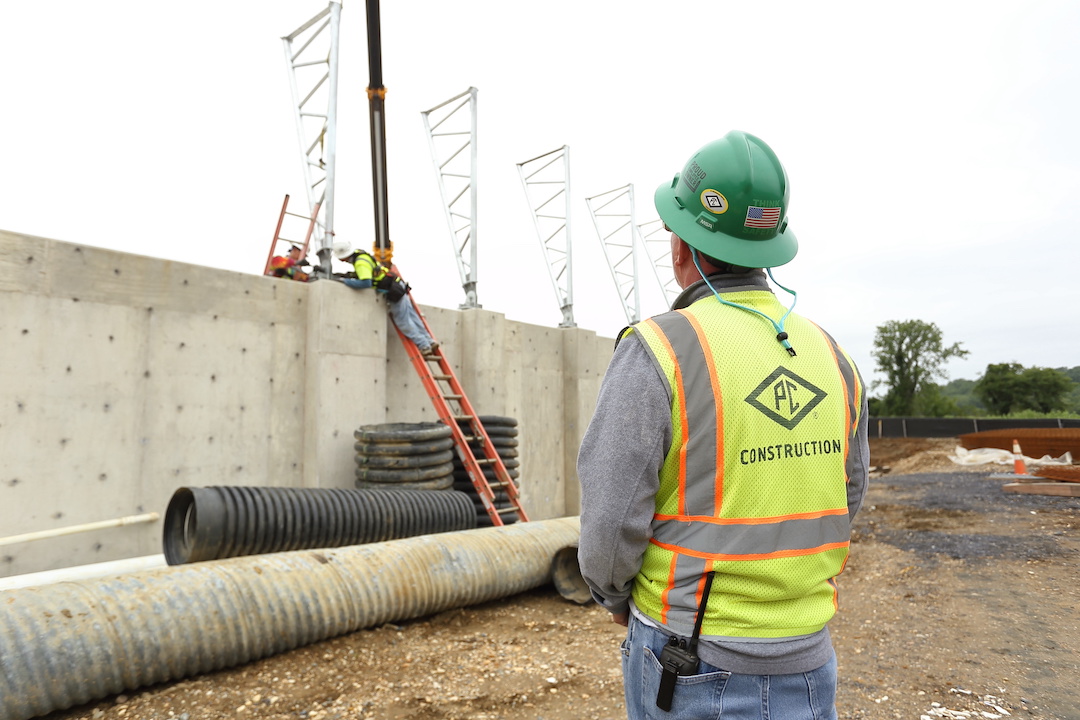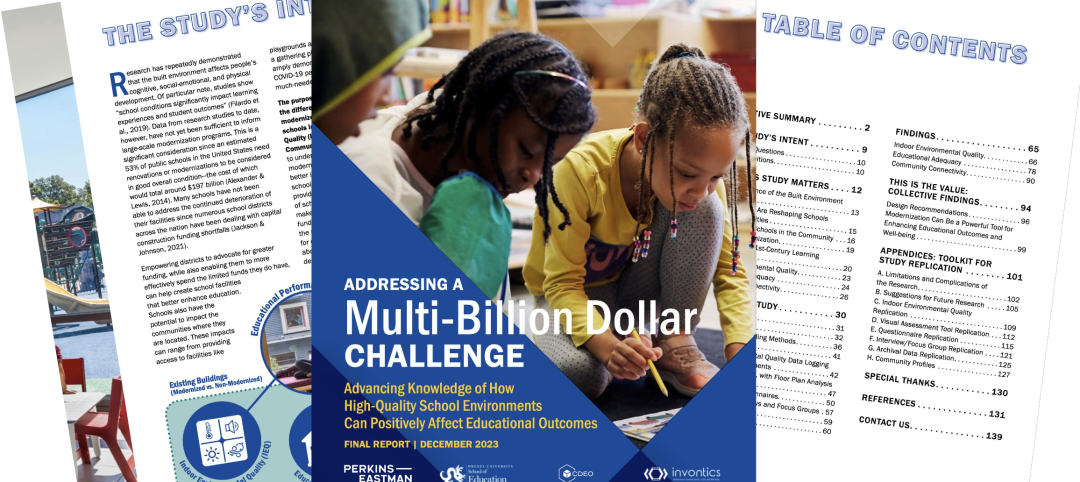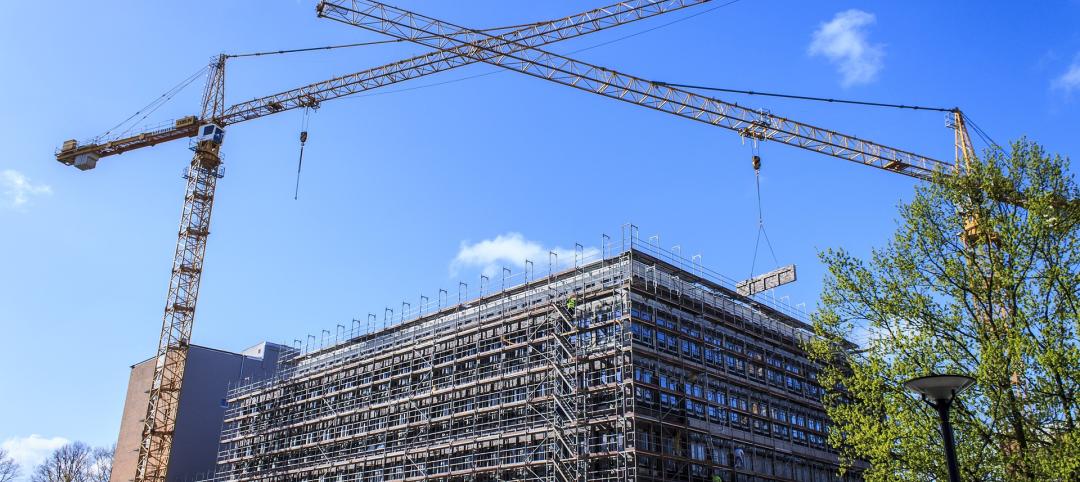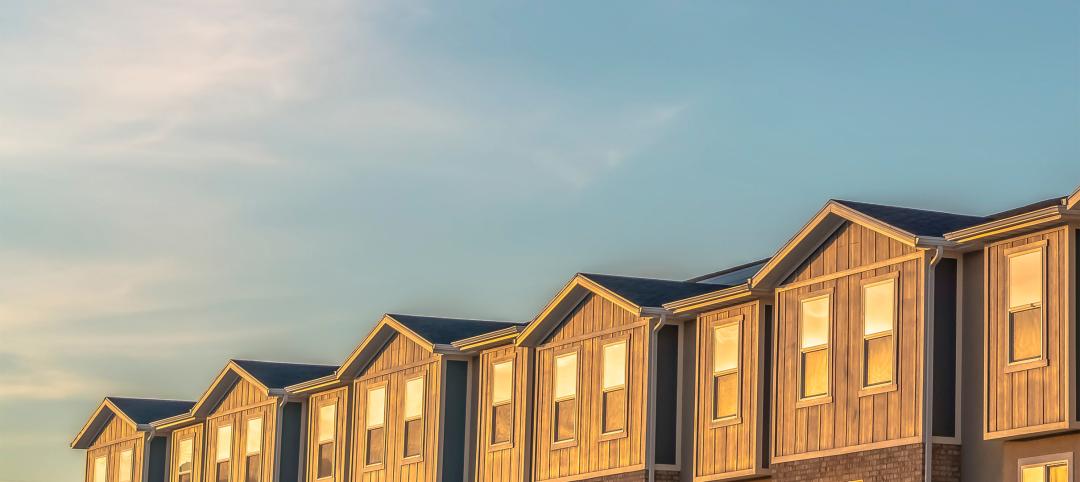The construction industry added 44,000 jobs between September and October as nonresidential construction firms posted back-to-back increases for the first time since January, according to an analysis by the Associated General Contractors of America of government data released today. Association officials said the employment gains were welcome news but cautioned that employment levels remain well-below pre-pandemic totals as firms struggle with supply chain problems, labor shortages and federal inaction on infrastructure funding.
“It is encouraging to see continuing job growth in nonresidential construction but the industry remains far behind the overall economy in recovering all of the job losses from the pandemic,” said Ken Simonson, the association’s chief economist. “Finding workers is a challenge after other sectors have hiring for much longer.”
Construction employment in October totaled 7,498,000, an increase of 44,000 since September. However, industry employment remained 150,000 below the pre-pandemic peak set in February 2020.
The nonresidential segment, comprising nonresidential building and specialty trade contractors plus heavy and civil engineering construction firms, added 33,000 employees in October, following a pickup of 25,800 in September. But nonresidential employment is 239,000 below the February 2020 level, as the sector has recovered only 63% of the jobs lost in the first two months of the pandemic.
Residential construction--including building contractors such as homebuilders, along with residential specialty trades--added 10,900 employees in October. Residential employment tops the February 2020 mark by 89,000. Simonson noted that the overall economy has regained 87% of the jobs lost between February and April 2020, an indication that many construction workers may have found jobs in homebuilding and remodeling or in other sectors.
Association officials urged members of the House of Representatives to quickly pass a federal infrastructure bill that received broad, bipartisan support in the Senate. They noted the new investments would help boost employment levels and improve overburdened distribution networks that are contributing to the supply chain problems. They also warned that new federal COVID vaccine mandates were likely to make it harder for firms that employ 100 or more people to retain and find new workers as the vaccine hesitant shift to smaller firms.
“House members should heed the lessons from this Tuesday’s elections and focus on passing bipartisan measures that will do much to boost our economy and improve supply chains,” said Stephen E. Sandherr, the association’s chief executive officer. “At the same time, we need to appreciate that having conflicting vaccine mandates for different types of firms is likely going to encourage the vaccine hesitant to work at places where the rules do not apply.”
Related Stories
Retail Centers | Apr 4, 2024
Retail design trends: Consumers are looking for wellness in where they shop
Consumers are making lifestyle choices with wellness in mind, which ignites in them a feeling of purpose and a sense of motivation. That’s the conclusion that the architecture and design firm MG2 draws from a survey of 1,182 U.S. adult consumers the firm conducted last December about retail design and what consumers want in healthier shopping experiences.
Market Data | Apr 1, 2024
Nonresidential construction spending dips 1.0% in February, reaches $1.179 trillion
National nonresidential construction spending declined 1.0% in February, according to an Associated Builders and Contractors analysis of data published today by the U.S. Census Bureau. On a seasonally adjusted annualized basis, nonresidential spending totaled $1.179 trillion.
Market Data | Mar 26, 2024
Architecture firm billings see modest easing in February
Architecture firm billings continued to decline in February, with an AIA/Deltek Architecture Billings Index (ABI) score of 49.5 for the month. However, February’s score marks the most modest easing in billings since July 2023 and suggests that the recent slowdown may be receding.
K-12 Schools | Mar 18, 2024
New study shows connections between K-12 school modernizations, improved test scores, graduation rates
Conducted by Drexel University in conjunction with Perkins Eastman, the research study reveals K-12 school modernizations significantly impact key educational indicators, including test scores, graduation rates, and enrollment over time.
MFPRO+ News | Mar 16, 2024
Multifamily rents stable heading into spring 2024
National asking multifamily rents posted their first increase in over seven months in February. The average U.S. asking rent rose $1 to $1,713 in February 2024, up 0.6% year-over-year.
Market Data | Mar 14, 2024
Download BD+C's March 2024 Market Intelligence Report
U.S. construction spending on buildings-related work rose 1.4% in January, but project teams continue to face headwinds related to inflation, interest rates, and supply chain issues, according to Building Design+Construction's March 2024 Market Intelligence Report (free PDF download).
Contractors | Mar 12, 2024
The average U.S. contractor has 8.1 months worth of construction work in the pipeline, as of February 2024
Associated Builders and Contractors reported that its Construction Backlog Indicator declined to 8.1 months in February, according to an ABC member survey conducted Feb. 20 to March 5. The reading is down 1.1 months from February 2023.
Market Data | Mar 6, 2024
Nonresidential construction spending slips 0.4% in January
National nonresidential construction spending decreased 0.4% in January, according to an Associated Builders and Contractors analysis of data published today by the U.S. Census Bureau. On a seasonally adjusted annualized basis, nonresidential spending totaled $1.190 trillion.
Multifamily Housing | Mar 4, 2024
Single-family rentals continue to grow in BTR communities
Single-family rentals are continuing to grow in built-to-rent communities. Both rent and occupancy growth have been strong in recent months while remaining a financially viable option for renters.
MFPRO+ News | Mar 2, 2024
Job gains boost Yardi Matrix National Rent Forecast for 2024
Multifamily asking rents broke the five-month streak of sequential average declines in January, rising 0.07 percent, shows a new special report from Yardi Matrix.

















